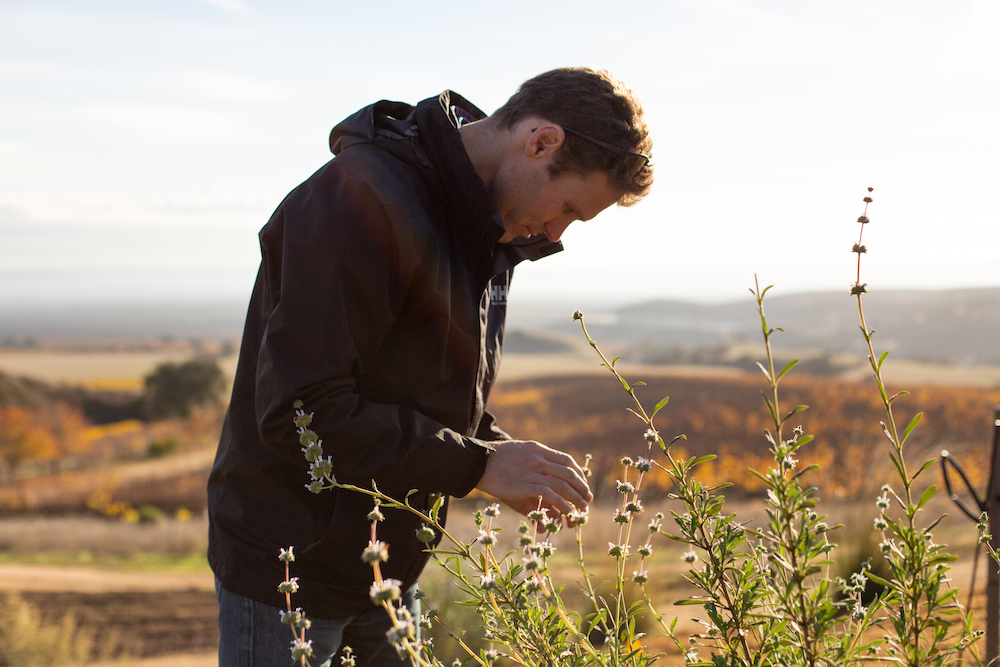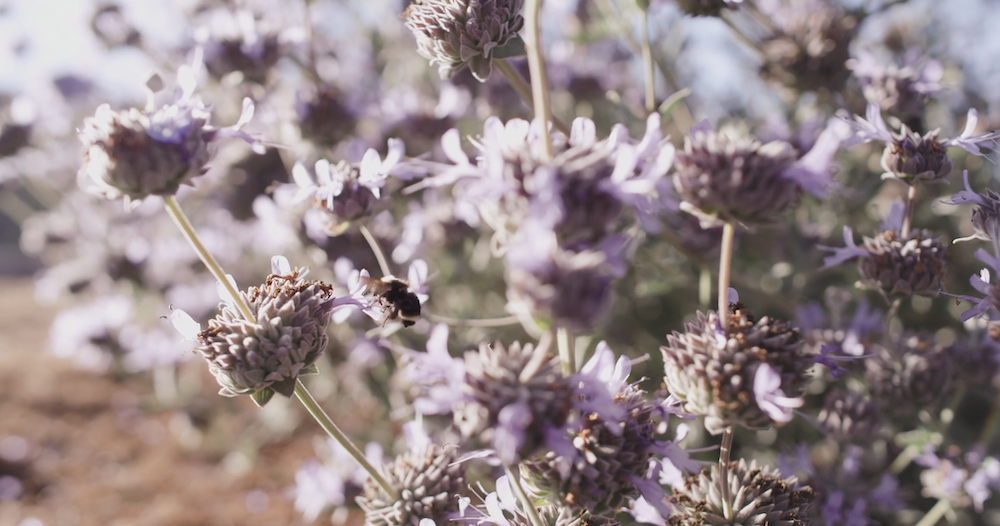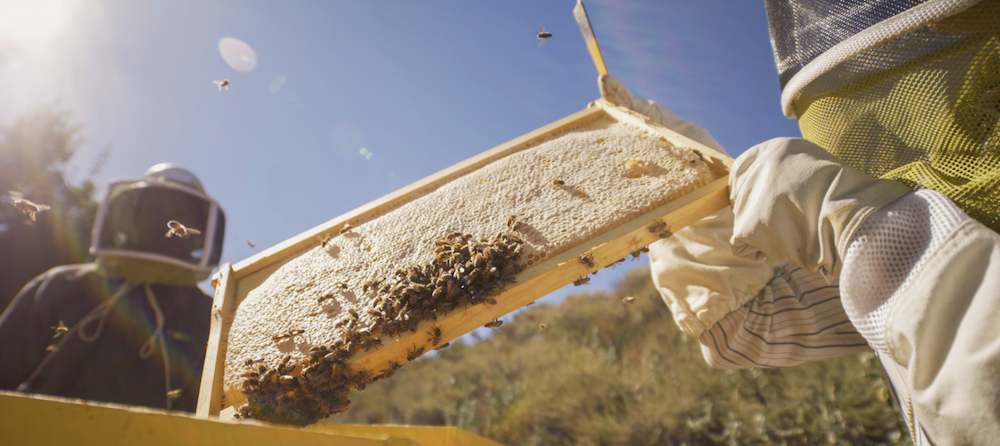
September 3, 2021 – The Pisoni family has been committed to sustainable farming and environmental preservation from their early days in the Santa Lucia Highlands. Isn’t that the only way to ethically operate? A recent chat with Mark Pisoni reaffirmed the family’s lasting desire to be good earth citizens. In fact, they received the coveted Green Medal award from the California Wine Institute last year. They were in good company, as 2020 Green Medal recipients also included J. Lohr Vineyard & Wines (Leader Award), Bonterra Organic Vineyards (Environment Award) and Clif Family Winery.
Pisoni feels this award recognizes their embedded practices like using solar power and variable speed pumps to reduce energy consumption, planting cover crops to enrich the soil and promoting biodiversity on the ranch with the establishment of an insectary and fruit tree orchard. They are consciously creating a polyculture. Unlike many vineyards, which are acre upon acre of grapes alone—monoculture—the Pisoni ranch seeks to preserve nature’s order and enhance it whenever possible.
This codifies their approach to a truly sustainable farm and, hopefully, sets a great example for others.
Along with these proven environmental practices, the Pisoni family also believes in extreme devotion to meticulous vineyard care, using experienced labor that understands what each vine needs to put forth the best fruit possible. Many in the vineyard team have been with the family for over 40 years, before Jeff and Mark were born. “The industry is becoming more mechanized,” says Pisoni. “We have a totally hands on approach, giving each vine proper attention.”
We all know that excellence starts in the vineyard and in this case, the insectary.

“Our long-term goal is to continue building on this incredible estate farm and winery that our family has been devoted to for many years,” says Pisoni, who still lives on the farm where he grew up, with his wife and two children, who thankfully have taken a serious interest in agriculture. Pisoni not only farms the family’s vineyards—Garys’, Pisoni and Soberanes—but many acres of row crops, including some of the best broccoli, asparagus and romaine you’ve ever tasted. Everything Mark touches, he wants to be proud of.
“You need to farm the right way. It is no longer enough just to grow excellent vineyards. You need to be taking care of your environment and community, too,” he says. That means using nature rather than chemical inputs to ultimate benefit. Which is why establishing an insectary on the Pisoni ranch became so important.
“We set aside two acres and planted it to all native plants, including toyon, deergrass, California buckwheat, California sagebrush, silver lupine and more. Developing the best possible fruit means taking care of everything on our land: everything from the soil to the plants to the beneficial insects and honey bees,” Pisoni told us.
The natives, many specific to Monterey, and in particular, to the SLH, attract pollinators like hummingbirds, bumble bees and honey bees. They also offer nesting materials for threatened bird species. At two acres, it is one of the largest insectaries of its kind in the state. Special projects manager Jazmin Lopez, currently a fellow in the California Agricultural Leadership Program, helped the family establish the insectary which attracts other beneficial insects like parasitic wasps that feast on mealy bugs, and hoverflies, that look like bees and suspend themselves over flowers, discourage aphids. The plants also attract ladybugs which feed on mites. Quite literally, it’s a place buzzing with excitement and purpose.

With its copious blooms, the insectary provides a natural field day for honeybees, which they started bringing onto the property about five years ago. They got their first hive from Carmel Honey Company’s Jake Riesdorf, whose family came out to the Pisoni ranch with the hive. “From there we got hooked,” says Pisoni. “We’ve been collecting hives by capturing swarms all over the county and bringing the bees back to the ranch.”
He admits the bees have become a treasured part of the farming experience. “Being out among the hives is one of my favorite hobbies.” Getting the honey is such a sweet reward, but instead of selling it, they give it to their vineyard team as part of a monthly harvest share program.
“I absolutely love being a farmer and part of a farming family where our focus is taking care of our ranches and our team. One of the most rewarding parts of this job is sharing all the fruits of the ranch with our super talented and hard working team at our big harvest party each year: the apples, the honey and, of course, the wine.” It reaffirms everything right about a healthy ecosystem.
The honey bees are invited, but will likely hang out at the insectary instead.
About the author
Laura Ness is a longtime wine journalist, columnist and judge who contributes regularly to Edible Monterey Bay, Spirited, WineOh.Tv, Los Gatos Magazine and Wine Industry Network, and a variety of consumer publications. Her passion is telling stories about the intriguing characters who inhabit the fascinating world of wine and food.
- Laura Nesshttps://www.ediblemontereybay.com/author/lness/
- Laura Nesshttps://www.ediblemontereybay.com/author/lness/
- Laura Nesshttps://www.ediblemontereybay.com/author/lness/
- Laura Nesshttps://www.ediblemontereybay.com/author/lness/


